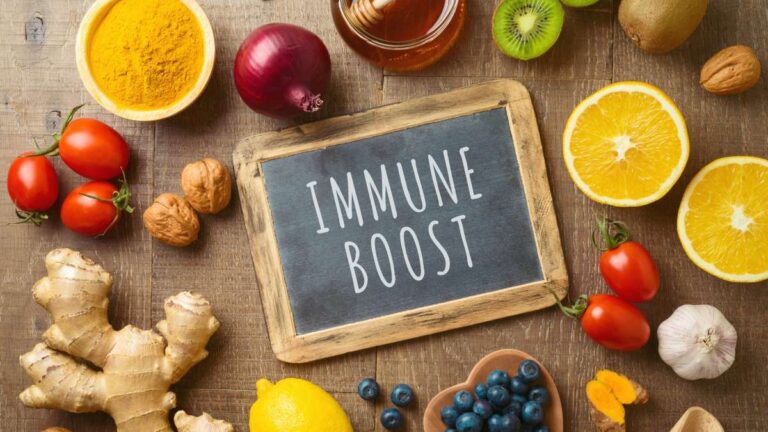Lately, fruit and vegetable supplements have been trending on social media. According to many nutritionists, however, most people don’t need to use these supplements.
Organic fruits and vegetables are better than supplements. They contain a ton of nutrients. They make you full and provide your body with fiber, something that usually lacks in supplements.
So, does that mean fruit and vegetable supplements are overrated? Are they worth buying or should you avoid them?
What are Fruit and Vegetable Supplements?

Fruit and vegetable supplements are capsules, powders, or gummies designed to supplement your intake of essential vitamins, take a look here. They supply your body with vitamins typically found in fruits and vegetables, mainly vitamins C, A, and E.
These supplements vary depending on their ingredients. Some of them provide your body with potassium and folate. Others focus more on vitamins A and C. However, they’re not supposed to replace organic foods.
Some people confuse fruit and veggie supplements with juices. The latter consists of blended fruit or veggies. Supplements must be in tablet, powder, or gummy forms.
Supplements vs organic Vegetables: Where Should You Get Your Nutrients from?
Although vegetable supplements can offer you a variety of vitamins, you should prioritize organic produce. Fresh farm produce adds the following nutrients to your body:
- Vitamin A: comes from mangoes, sweet potatoes, and carrots.
- Vitamin B: comes from tomatoes, spinach, peas, broccoli, berries, and citrus fruits like lemons and oranges.
- Vitamin C: available in nearly all fruits and vegetables. Available in high doses when you consume berries, citrus fruits, and leafy vegetables.
- Vitamin E: highly concentrated in dark green vegetables like kale and spinach. Can also be found in certain berries.
- Minerals: most leafy greens provide your body with calcium and magnesium. But if you’re also looking for potassium, eat supplements made from avocadoes, bananas, and squash.
- Vitamin K: found in blueberries, kale, and spinach.
Why Do You Need Minerals and Vitamins in Your Body?

The biggest benefit of consuming vitamin-providing foods is that they keep you healthy. Some of them protect you from diseases. Others give you strong bones, healthy skin, and good vision. Below are more reasons to add nutrient-dense foods to your diet, especially fruit and vegetables:
Stimulates Your Digestive Health
Consuming fruit and vegetables give your body digestive enzymes, fiber, prebiotics, and probiotics that are good for your gut. Not every supplement contains these benefits. This is why you should always eat actual fruits and vegetables as much as you can.
Boosts Your Immune System
If you studied biology in school, you probably can remember your teacher talking about red and white blood cells. White blood cells are like soldiers that fight diseases in your body.
If you want to have a healthy number of white blood cells in your body, consume fruit and vegetables. Precisely, consume vegetables that contain folate, zinc, and vitamin B12.
Can Improve Your Cardiovascular Health
As we stated earlier, don’t rely on supplements alone for your health. If you want a healthy cardiovascular system, eat more fruit and vegetables. They’re low on calories and rich in fiber. That means they don’t cause inflammation and may improve the quality of your blood.
Are Fruit and Vegetable Supplements Safe?

Generally, fruit and vegetable supplements are safe. Here’s how they’re made. Manufacturers select a variety of fruit and vegetables. Next, they dehydrate this product before turning the result into capsules, powder, or gummies.
Although supplements can’t replace apples and kale, they contain some of the nutrients provided by fresh produce. Some of these capsules have high concentrations of essential minerals because they’re often blended by combining multiple fruits and veggies.
With that in mind, the process of creating supplements comes at a cost. Certain nutrients—mainly antioxidants—die when exposed to heat and light during the creation of supplements.
Are Supplements Hype or Do They Contain Health Benefits?
Many nutritionists say that you should strive to get all your minerals and vitamins from organic fruit and vegetables. That’s because real fruit and veggies have fiber and make you feel full for long.
However, if you can’t take fruit and vegetables for a particular reason, you can always supplement your intake of essential nutrients by using fruit and vegetable supplements.
Supplement Safety: What You Should Know
Although supplements give you essential nutrients, they can be dangerous in high doses. Too much vitamin D, A and E can cause negative health effects. Excessive consumption of fruit and vegetable supplements may also affect the following people:
- Pregnant women
- People with chronic heart conditions
- People booked to have surgeries
- People with cancer
You should focus on eating organic fruit and vegetables to get essential nutrients. But if you’re ready to buy fruit and vegetable supplements, use the following tips:
Tip 1: Read Product Labels

Supplements come in all shapes and sizes. Read a product’s label to learn about its ingredients. Find out what vitamins you’ll get for consuming a specific supplement.
Look for vegan vegetable supplements. Avoid products with added sugars or non-organic ingredients.
#2: Buy Products Backed by Research
Anyone can claim they have vegetable supplements that give you specific nutrients. But how do you know this information is true? Dig around to find products whose benefits have been studied by credible organizations.
Also, look out for supplement products that with certification labels from Consumer Lab Seal, NSF International or US Pharmacopeia.
#3: Read Reviews

Reviews give you an excellent idea of what buyers think about specific supplements. People generally leave positive reviews for products that are safe. They also praise products that have actual health benefits. Avoid poorly rated supplements.
#4: Avoid Supplement with Suspicious Claims
The Internet is packed with vitamin tabs that claim to cure diseases like cancer, diabetes and obesity. Spoiler alert: they don’t. Most of these brands are after your money.
They market their fake products with promises they can’t deliver. Some of them even offer money back guarantee. Truth be told, you can’t trust these companies. And as mentioned, they sell supplements with no true health benefits.
Related Posts:
- 20 Best Gaming Headset Under 50$ 2024 - for PC, PS4,…
- 15 Best Dog Food For Allergies 2024 - Adult, Puppy…
- 12 Best Car Wax For Black Cars 2024 - Protection and…
- Top 16 Best Office Chair Covers 2024 - Chair…
- Top 10 Best Outdoor Basketball Shoes 2024 - Durable…
- 15 Best Shoes for Walking on Concrete 2024 - Soft &…







